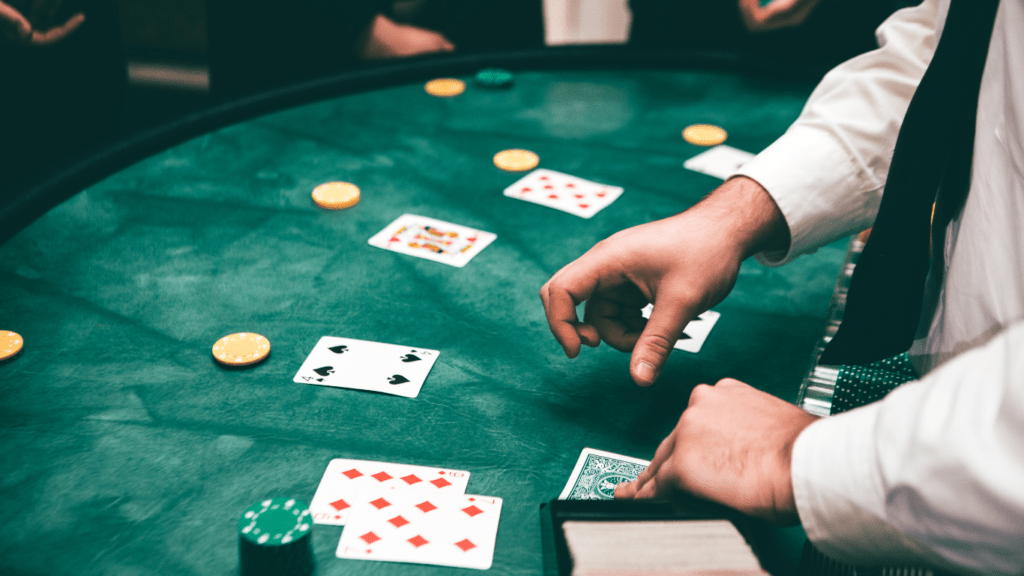Gambling has fascinated humanity for centuries, drawing us in with the thrill of risk and the allure of reward. I’ve often wondered why we’re so captivated by the chance to win big, even when the odds are stacked against us.
The psychology behind gambling reveals a complex interplay of emotions, societal influences, and cognitive biases that can lead us to make choices we wouldn’t normally consider. Understanding these psychological factors is crucial, not just for those who gamble but for anyone looking to navigate the world of risk responsibly.
In this article, I’ll explore the reasons we take risks and share practical tips on how to stay safe while enjoying the occasional wager. Whether you’re a seasoned gambler or just curious, gaining insight into these dynamics can empower you to make informed decisions.
Understanding The Psychology Behind Gambling
Gambling captivates many due to its intertwining of risk and reward. Psychological factors significantly influence why individuals engage in this behavior.
The Thrill of Risk-Taking
Risk-taking in gambling produces adrenaline spikes that create excitement. The uncertainty of outcomes drives individuals to seek thrills, compelling them to wager despite potential losses. Cognitive biases, such as the illusion of control, reinforce this behavior.
Gamblers often overestimate their skills, leading to increased risk-taking. The potential for a win triggers dopamine release, reinforcing the desire to gamble again, even after experiencing losses.
Emotional Triggers in Gambling
Emotions play a crucial role in gambling decisions. Stress, boredom, or a desire for social connection can drive someone to gamble. Individuals may use gambling as an escape from reality or a way to cope with negative feelings.
Positive emotions, like confidence from a win, can also fuel further gambling. These emotional connections contribute to problematic gambling behavior, making it essential for individuals to recognize emotional triggers and address them responsibly.
Factors Influencing Gambling Behavior
Gambling behavior is shaped by various psychological and social factors. Understanding these elements can aid in recognizing the motivations behind risk-taking and the potential consequences.
Cognitive Biases and Decision Making
- Cognitive Biases in Gambling: Players often experience the illusion of control, believing they can influence random outcomes, despite gambling being based on chance.
- Distorted Risk Perception: Biases like the availability heuristic and optimism bias cause gamblers to overestimate wins and underestimate losses, making rational decision-making difficult.
Social Influences on Gambling Choices
Social factors heavily influence gambling behaviors. Peer pressure encourages risk-taking, especially in social settings like casinos. Observing friends or family members gambling can normalize the behavior, pushing individuals to partake.
Cultural attitudes towards gambling also impact decisions; in some societies, gambling is viewed positively as a form of entertainment, while in others, it’s associated with stigma. Additionally, social networks can shape attitudes towards risk, as shared experiences can amplify excitement and perceived benefits.
Therefore, understanding these influences can help individuals grasp the broader context of their gambling choices.
The Risks of Gambling
Gambling poses various risks that can significantly affect individuals and their loved ones. Understanding these risks is crucial for making informed decisions.
Financial Consequences
Gambling can lead to severe financial repercussions. Estimates indicate that about 1% to 3% of the adult population will struggle with disordered gambling, resulting in debts that can reach tens of thousands of dollars.
Many gamblers face a cycle of borrowing funds to cover losses, further exacerbating their financial situation. Excessive gambling often leads to the depletion of savings and the inability to meet essential financial obligations, resulting in bankruptcy or foreclosure.
Impact on Mental Health
Gambling impacts mental health negatively, contributing to anxiety, depression, and stress. Studies show a significant correlation between gambling disorders and mental health issues, with approximately 40% of problem gamblers reporting symptoms of depression.
The stress of financial loss can further exacerbate these conditions, leading to feelings of isolation and hopelessness. Additionally, the thrill associated with gambling creates a cycle of highs and lows, which can destabilize emotional well-being. Seeking help is essential when gambling begins to affect mental health or daily functioning.
Strategies for Safe Gambling
Understanding safe gambling practices is crucial for maintaining control while enjoying the activity. I prioritize setting clear limits and recognizing warning signs to prevent potential issues.
Setting Limits and Boundaries
Setting limits establishes a framework for responsible gambling. I determine a specific amount of money to spend on gambling activities, ensuring it’s an affordable budget. I also set a time limit for my gambling sessions to reduce excessive play.
Using tools like self-exclusion programs aids in maintaining boundaries, providing essential breaks from the activity. Tracking my spending and time helps assess personal gambling habits, enabling me to adjust as necessary.
Recognizing Warning Signs
Recognizing warning signs allows me to monitor my gambling behavior effectively. Signs of problematic gambling include an increased preoccupation with gambling, chasing losses, or lying about gambling activities.
Emotional distress linked to gambling, such as anxiety or irritability, serves as an important indicator of potential issues. If I find myself borrowing money to gamble or neglecting responsibilities due to gambling, I acknowledge that it’s time to reevaluate my relationship with this activity. Seeking professional help when necessary ensures that I address any underlying issues promptly.





